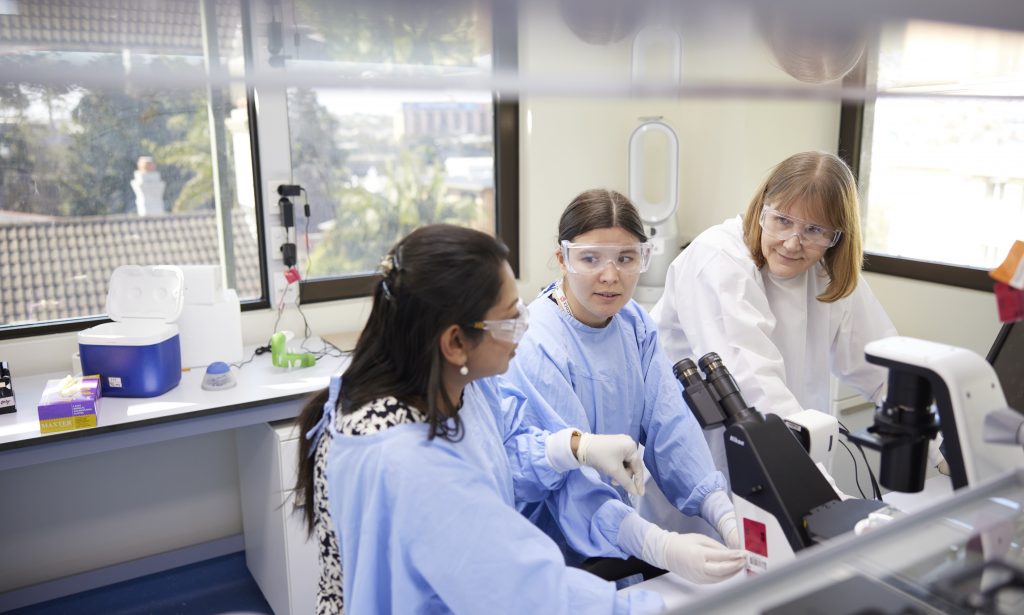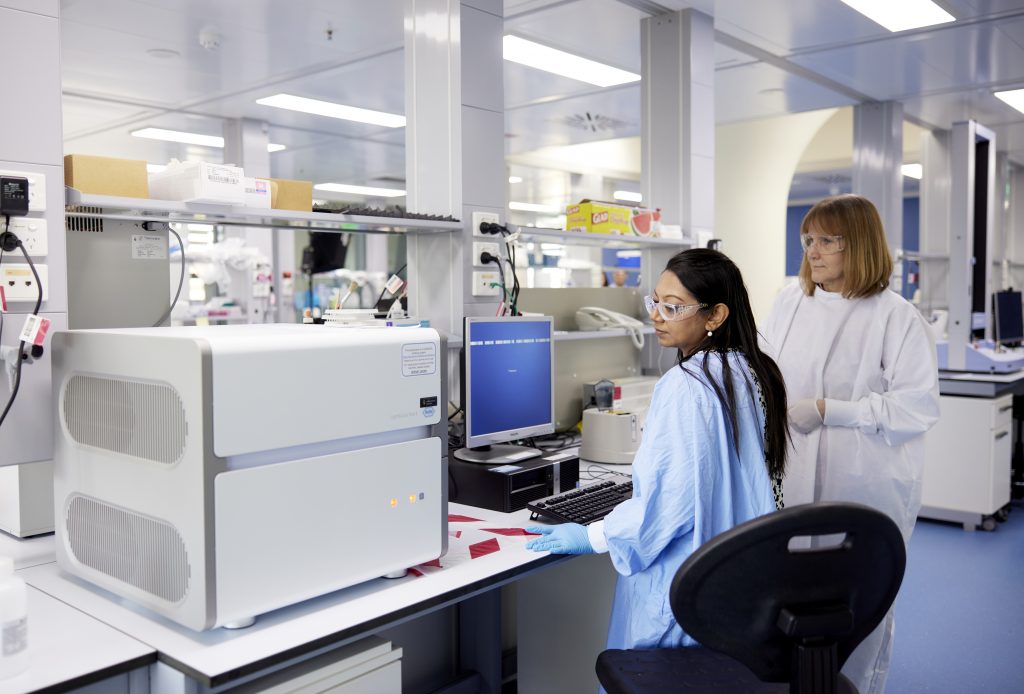Restoring the balance
New research is showing that a balanced and healthy microbiome could help ensure the success of cancer treatments.
Swallowing a cocktail of live bacteria doesn’t sound like something a doctor would usually recommend. But ongoing research is showing that the efficacy of cancer treatments can be affected by the patient’s microbiome – the type, numbers and diversity of helpful bacteria living in their gut, lungs and elsewhere. If the microbiome is out of balance – due to something as simple as having a course of antibiotics before immunotherapy – then the patient is less likely to benefit from treatment.
“We know from brand new research that the timing of antibiotic exposure is critical, not only for the efficacy of immunotherapy but also for standard chemotherapy,” says Professor Maija Kohonen-Corish, Director of the Woolcock Centre for Lung Cancer Research.
“Antibiotic treatment is often necessary, but antibiotic exposure within 90 days prior to the start of chemotherapy is associated with a shorter lifespan of lung cancer patients.
“The next step is to find out what the cause is, and the microbiome is a good candidate, because when we take antibiotics they cause dysbiosis in the gut – a loss of diversity in the microbiome. Some bacteria dominate, and the microbiome gets out of balance.”

Every breath you take
A geneticist and the former head of a lung and cancer research group at the Garvan Institute, Kohonen-Corish became interested in cancer microbiome research after working with the Microbiome Research Centre at UNSW in 2019. She then was invited to set up the Centre for Lung Cancer Research at the Woolcock Institute of Medical Research, which is one of 11 institutions supported by NSW Health’s Medical Research Support Program.
Microbiomes can be affected by diet or drugs. Research into the microbiome and the way it affects cancer patients is still at very early stages, particularly in regards to the lung microbiome. Like the gut, the lungs also have a critical ecosystem of beneficial bacteria, but whereas bacteria in the gut number in the trillions per square centimetre, they only number in the thousand in the lung. “They need to be there – they help the protective barrier guarding the lungs from harmful substances in the air that we breathe,” Kohonen-Corish says.
She is leading a 3-year study in lung cancer patients to determine how best to measure microbiome diversity to predict whether a patient will be resistant to therapy. Currently, microbiomes are usually measured via a stool test, which is perceived to be an inconvenient and unpleasant test, and sometimes not done in a timely way by patients. Other options include analysing the microbiome in a lung sample, and recent studies have shown that even an oral microbiome test might be sufficient.
“Antibiotics affect the whole body, they don’t just affect the gut,” Kohonen-Corish says. “If we could tell beforehand that the patient’s microbiome is out of balance, this could be treated first. Studies are already underway to identify the best type of biotherapeutics or diet modifications to restore the microbiome.”

Vital research
The current research involves taking multiple samples from cancer patients before they start systemic therapy and then following their medical journey as they receive treatment. As of May 2022, the project is well on the way to signing up the minimum 100 patients needed for the study.
Lung cancer kills almost 3000 people each year in NSW, yet “there are very few studies completed yet in Australia or overseas on microbiomes and lung cancer,” she says.
For this study, the institute is collaborating with the UNSW Microbiome Research Centre, Chris O’Brien Lifehouse and Royal Prince Alfred Hospital, with seed funding from Perpetual IMPACT and Lung Foundation Australia.
Kohonen-Corish is optimistic about the research and its potential to help cancer patients in the future. “We have a great team and network and generous donors,” she says.
Updated 3 years ago